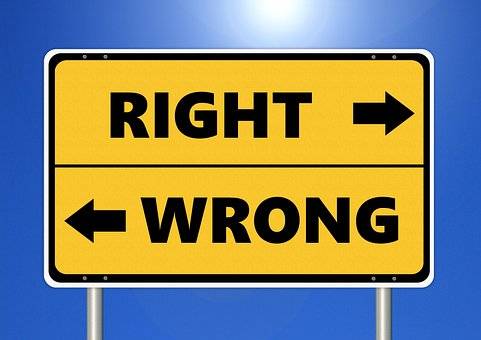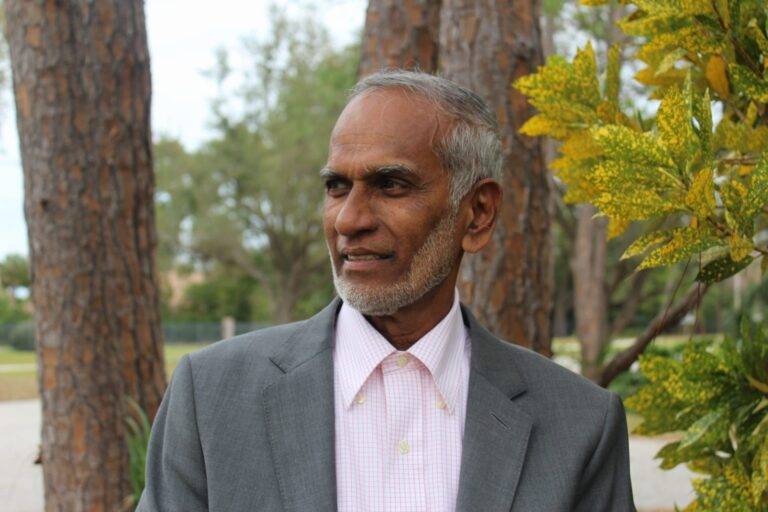Integrity is the possession of those who do not break their covenant, of those who do not betray and undermine others, of those who do not yield to the temptation to side with the powerful over the weak and vulnerable, of those who do not compromise on the question of fairness. It belongs to those who uphold the standards of justice and truth no matter what, to those who issue statements of substance instead of platitudes when morality crumbles around them. The Quran and the Sunna speak so unequivocally to the absolute application of these principles in our relationships with others that we can confidently say that integrity is a prized possession of Muslims.
“And do not barter away the covenant of Allah for a paltry gain. Verily that which is with Allah is far better for you if you only knew” (16: 95). This Quranic prohibition on breaching a covenant is emphatic as it is unequivocal. There is no room to wiggle out of it, as everything you stand to gain in this world from breaching your contract with Allah and with fellow human beings is nothing compared to what you stand to gain in the next world for honoring it.
Honoring of Oaths

Islam also places preeminent value on fulfilling our oaths. Oaths, a sister principle of a covenant, are meant to be honored, not entered (into) for the purpose of placating others or circumventing commitments. Oaths are sacrosanct- there is simply no other way to characterize it.
“Do not make your oaths a means of deceiving one another or else your foot may slip after having been firm and you may suffer evil consequences because of hindering people from the way of Allah. A mighty chastisement awaits you.” (16:94). This verse makes it clear that not only is the intent to deceive reprehensible and haram but also that the punishment for this sort of behavior is extremely severe. Arguably, this frontal attack on betrayal and deception is unique to Islam. This uniqueness also applies to the dispensation of justice.
Islam’s Position on Justice is Unmatched

In terms of advocating for justice, Islam is a gem: nothing else comes close to Islam in the matter of asserting and upholding justice. “Oh, ye who believe! Stand out firmly for justice, as witnesses to Allah, even against yourselves, or your parents, or your kin, and whether it be (against) rich or poor: for Allah can best protect both. Follow not the lust (of your hearts), lest ye swerve and if ye distort (justice) or decline to do justice, verily Allah is well acquainted with what ye do” (4: 135).
Trying to find anything as direct and comprehensive like this on the issue of justice in any text, religious or otherwise, will be nothing less than futile on the part of the researcher. Integrity is the bulwark against treating others unjustly and unfairly. This concept of justice and fairness puts supreme value on human life and human worth – whether it involves the rich or the poor, the powerful or the weak.
“Because of that, we decreed for the Children of Israel that whoever kills a soul unless for a soul or corruption (done) in the land – it is as if he had slain humankind entirely. And whoever saves one (life) is as if he had saved humankind entirely.” (5:32). It is impossible to produce anything that stresses the sanctity of human life more than this verse of the Quran. In today’s world, as it was in yesterday’s time, people are killed for their land, for their resources, for their faith. Yet for many people with power and political influence, these injustices evoke little consternation, let alone the will for direct intervention. Were they people and leaders of integrity, things would be vastly different.
The Predominance of Self-Interest
We note the ease with which powerful nations move to grant legal immunity to some world leaders accused of, and in some cases indicted for, serious crimes. They seem to have no compunction whatsoever. There are no surprises here at all for those who understand the apocalyptic nature of geopolitics; and principle, unfortunately, is the first casualty of this. On the issue of legal immunity as far as certain people are concerned, there seems to be a moratorium on the application of integrity as though circumstances decide how and when it could be applied. The yardstick is self-interest rather than principle.
The truth is that any principle that stands in the way of getting access to vital resources will be dropped from the vernacular of established and universal principles. Anything and everything become susceptible in such an environment. The application of certain ideals, such as truth, justice, and fairness, can be suspended without any qualms, as integrity does not underpin the behavior of those in control of state apparatus. On almost every major moral issue today, there is either silence or the issuance of lofty statements that action would be taken. With integrity so missing, lofty statements turn out to be mere platitudes. The imperative of the moment is to upend these obliquities. The world will be different from what it is today when this happens.
An Apocalypse
Others may find pretexts for breaching these golden principles, but Muslims cannot conceivably come up with justifiable excuses for rupturing them. The Islamic texts categorically prohibit such actions because they are displeasing to Allah and because they lead to outcomes such as unfairness, anger, frustration, disappointment, loss of trust, rebellion – all of which can lead to destabilization and even, Allah forbid, an apocalypse.
Integrity is conduct that epitomizes universally accepted moral principles and universally admired ideals, some of which I have highlighted above Oxford Languages has described it as “the quality of being honest and having strong moral principles.” Because Islam leaves no room for circumventing these strong moral principles, there is no question that integrity is a prized possession of Muslims.




